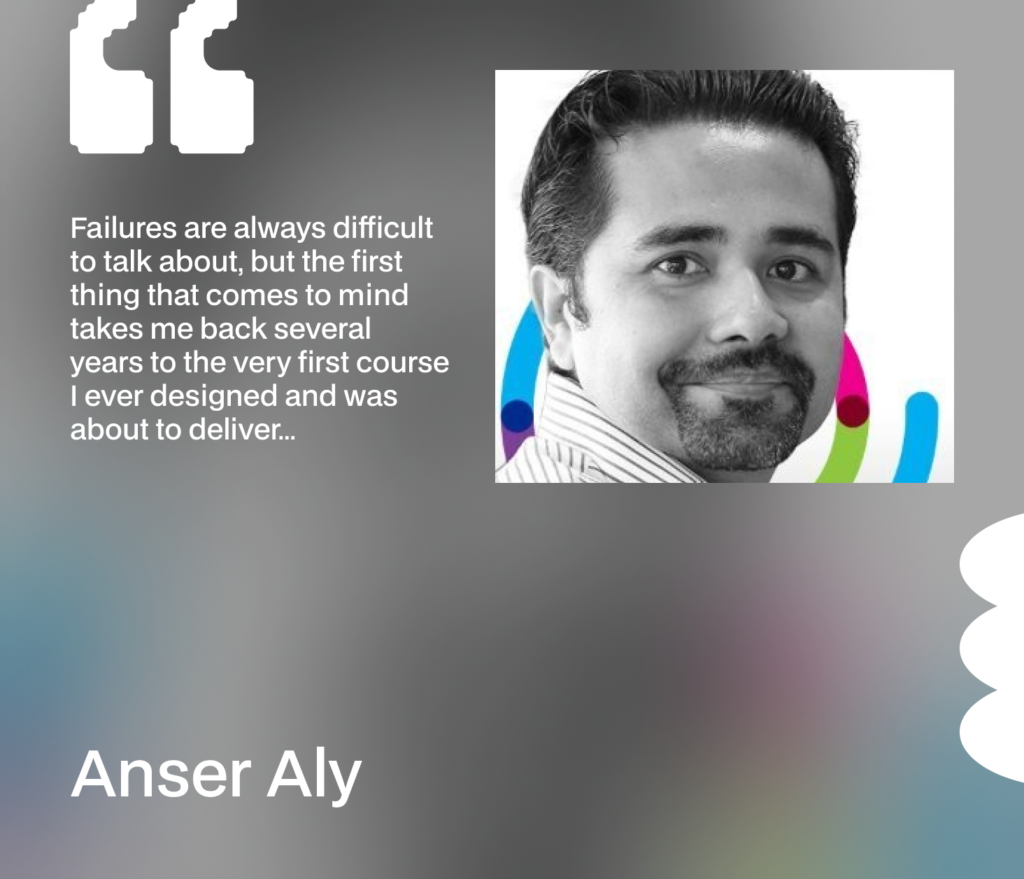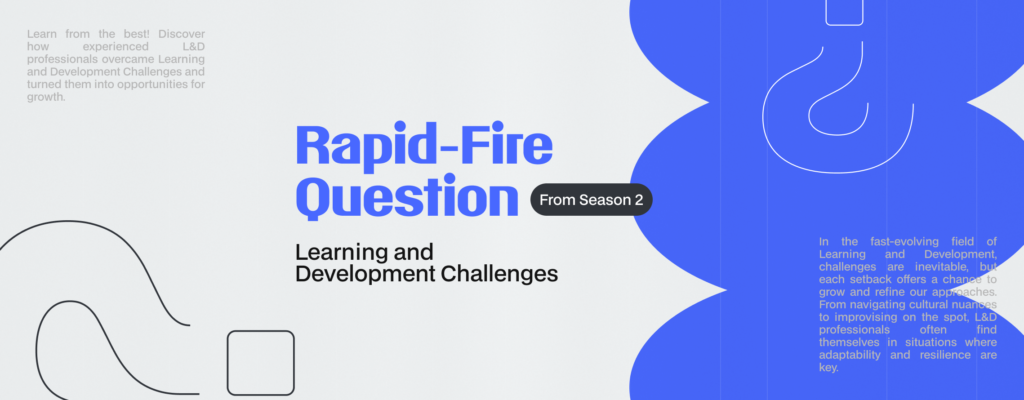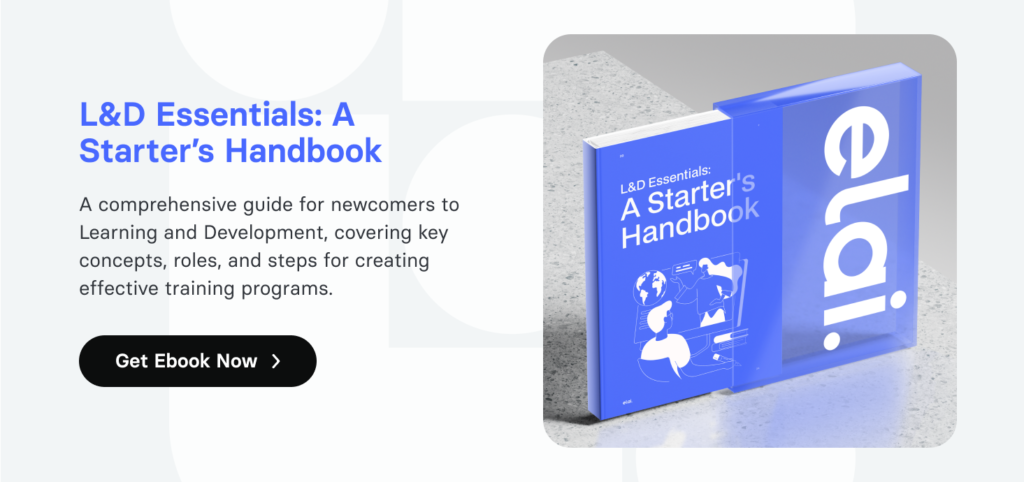In the fast-evolving field of Learning and Development, challenges are inevitable, but each setback offers a chance to grow and refine our approaches. From navigating cultural nuances to improvising on the spot, L&D professionals often find themselves in situations where adaptability and resilience are key.
This article captures real stories from experienced L&D experts who share candid moments when things didn’t go as planned as a recap of the second season of Elai’s podcast EdTalks. These experiences, though challenging, became valuable lessons that shaped their careers and perspectives on learning design, facilitation, and strategy.
Whether you’re new to the field or a seasoned professional, these insights serve as powerful reminders that every misstep is an opportunity to learn, innovate, and do better. Read on to discover how these professionals turned their toughest moments into meaningful growth.
Tamara Perminova
“Oh, implementing English learning in a big company was one of the hardest tasks for me. I think it never succeeded properly. Your success as a learner depends so much on internal motivation. Whatever the company does, it will never be effective unless you really find time and resources for your learning.
During the past 14 years in a big international company where I worked, I focused on this task at both local and global levels, and I don’t think it ever succeeded much. Back then, we didn’t have as many online resources as we do now—like Preply and English Dom. Before COVID, everyone wanted to learn face-to-face, in a group, or with a personal tutor. But finding a perfect match was always difficult.
In terms of outcomes, I wouldn’t say we were very successful. But in terms of my learning journey, I realized a key insight: the learner’s success depends on their own internal motivation. Sometimes, there’s nothing a company can do to facilitate that. You can invest a lot of resources, but they won’t always yield a good return on investment.”
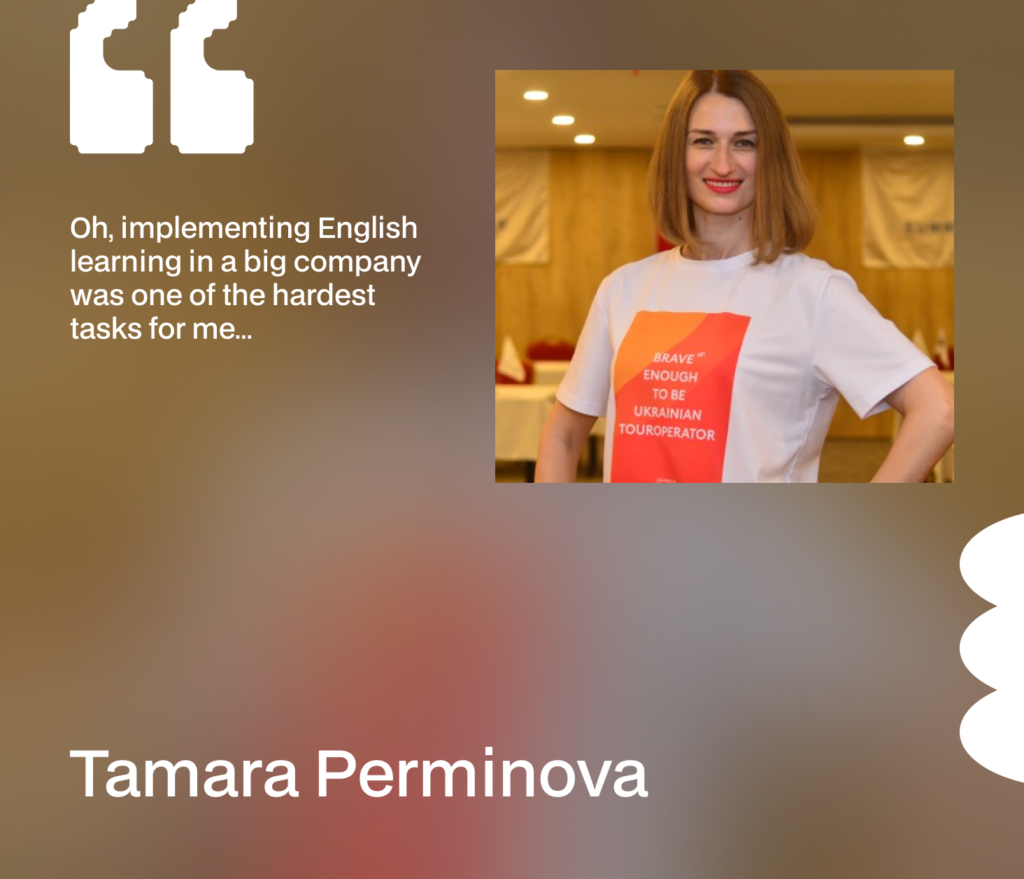
Diana Oliveira
“Early in my career, I worked in MOSM for five years. I was a trainer for a Portuguese company, and they sent me a pre-made PowerPoint to use in a training session. I read it, and it seemed fine to me.
But when I went to the session, I learned the importance of personalization. Even though MOS and Portugal both speak Portuguese, there are words that mean different things in these countries. It was awful to discover this mid-session!
That experience taught me that you always need to adjust to the audience, their country, or their culture. It was a very valuable learning experience.”
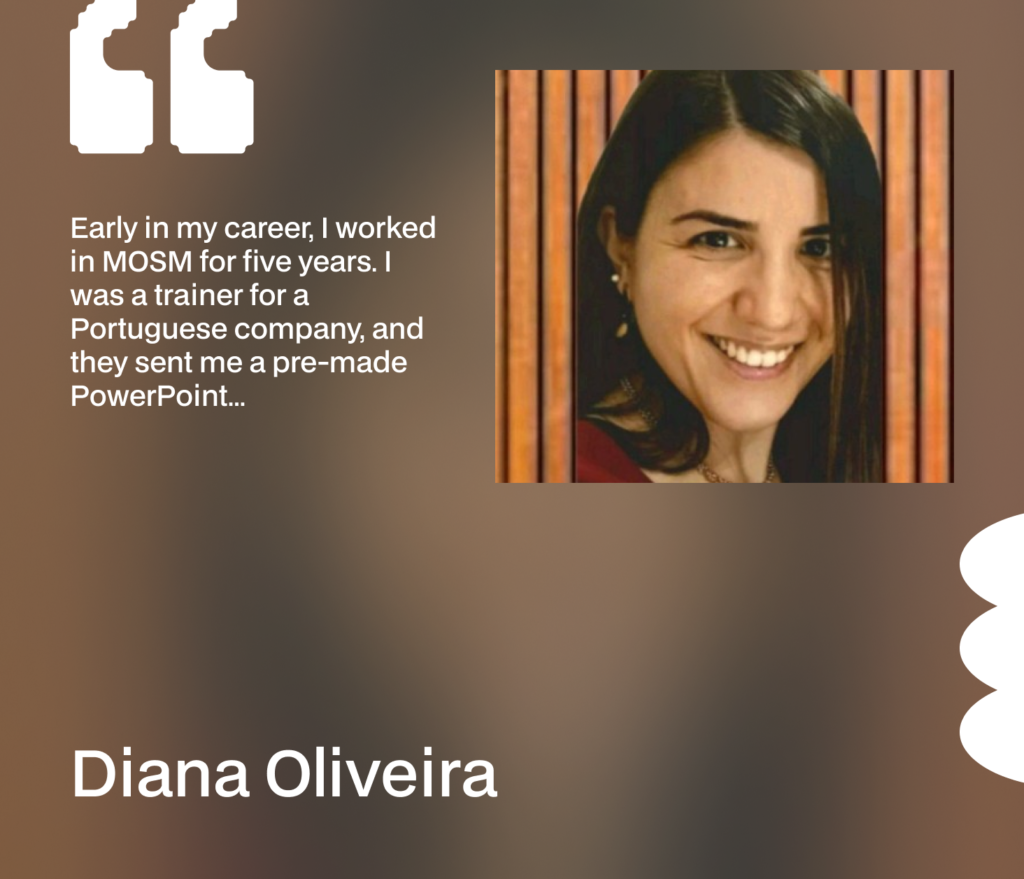
Giuseppe Perrone
“There was one time when I couldn’t agree on the outline of a session with a co-trainer. We were just about to deliver, and we still didn’t agree. I ended up going on stage and completely making it up.
I created a session on the spot, which wasn’t very good. I didn’t feel supported—I felt alone. It was a fight-or-flight response, and I just improvised. Somehow, people said they liked it, and it worked, but I don’t think the objectives were reached.
From that experience, I learned how to better handle working with co-trainers. Even though I couldn’t save that instance, it was a failure that kickstarted my learning process. I reflected on what went wrong and how I could do better next time.”
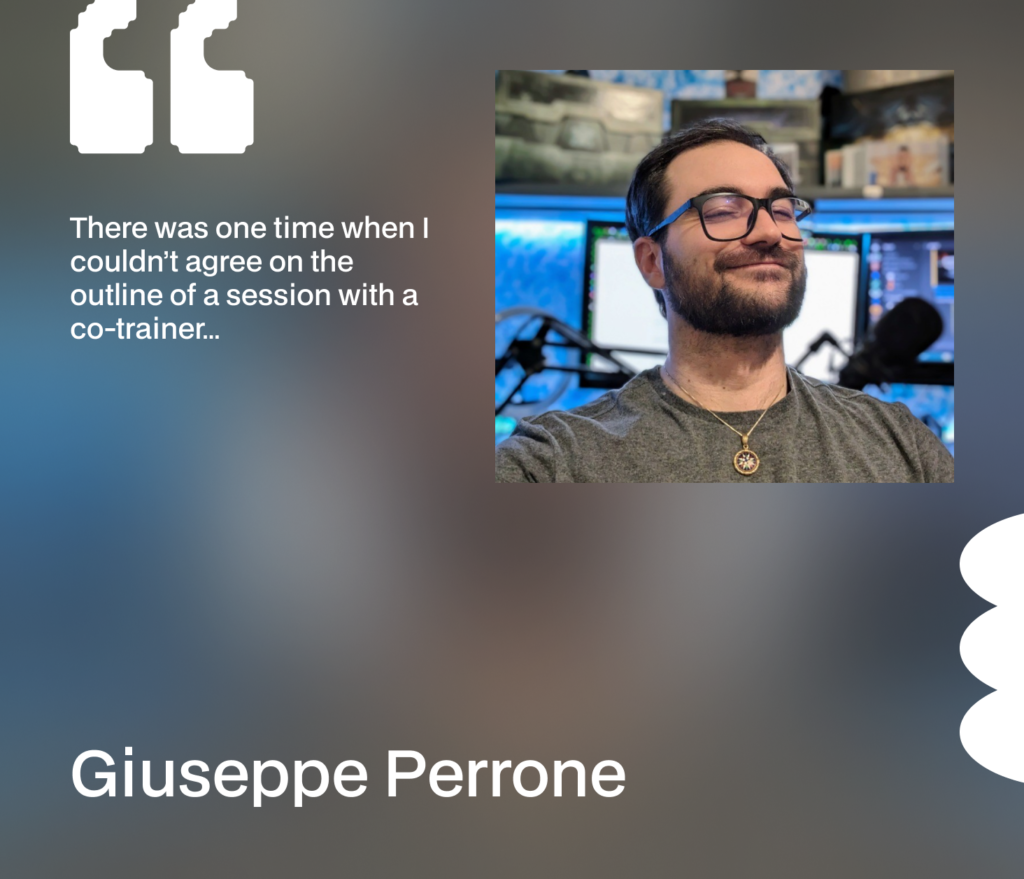
Ren Narciso
“I can’t think of one exact challenge because all projects have their own difficulties. Some of them even get shelved midway through.
For me, the key lesson is to never fall in love with your projects. Don’t get too attached; that way, it’s easier to let go when things don’t go the way you envisioned. Then you can start over quickly. It wasn’t exactly a setback, but it helped me learn an important lesson.”

Anastasiia Naumenko
“It happened when I was doing too many webinars, and everything failed—internet, cell phone data, everything. My expert speaker was absent for about 10 minutes, and I had to fill that space.
From that, I learned two things. First, you cannot be too prepared. Learn your topics, your questions, and always have backup plans. Second, you can’t be scared of the worst happening. If it happens, accept the challenge anyway. Trust in yourself and always be ready.”
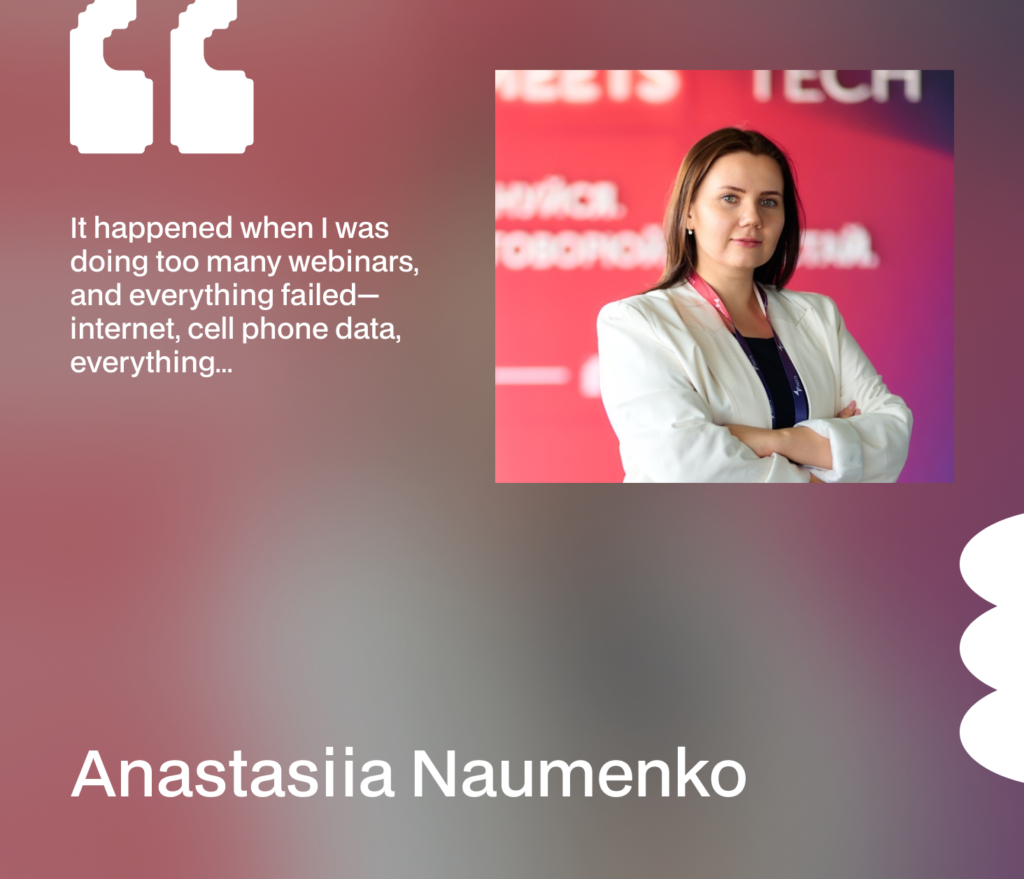
Mike Taylor
“When I was starting out, I was building my first e-learning course. I was so excited! I had all these big ideas, but the topic was really boring—water pH in a power plant. I thought, ‘I need to spice it up to make it interesting.’
Later in my career, while studying for a master’s in educational technology, I learned from the book Learning and the Science of Instruction that adding unnecessary ‘spice’ can actually suppress learning.
Looking back, I shouldn’t have done it, but it taught me an important lesson. It’s always valuable to validate your intuitions with research and effective techniques.”
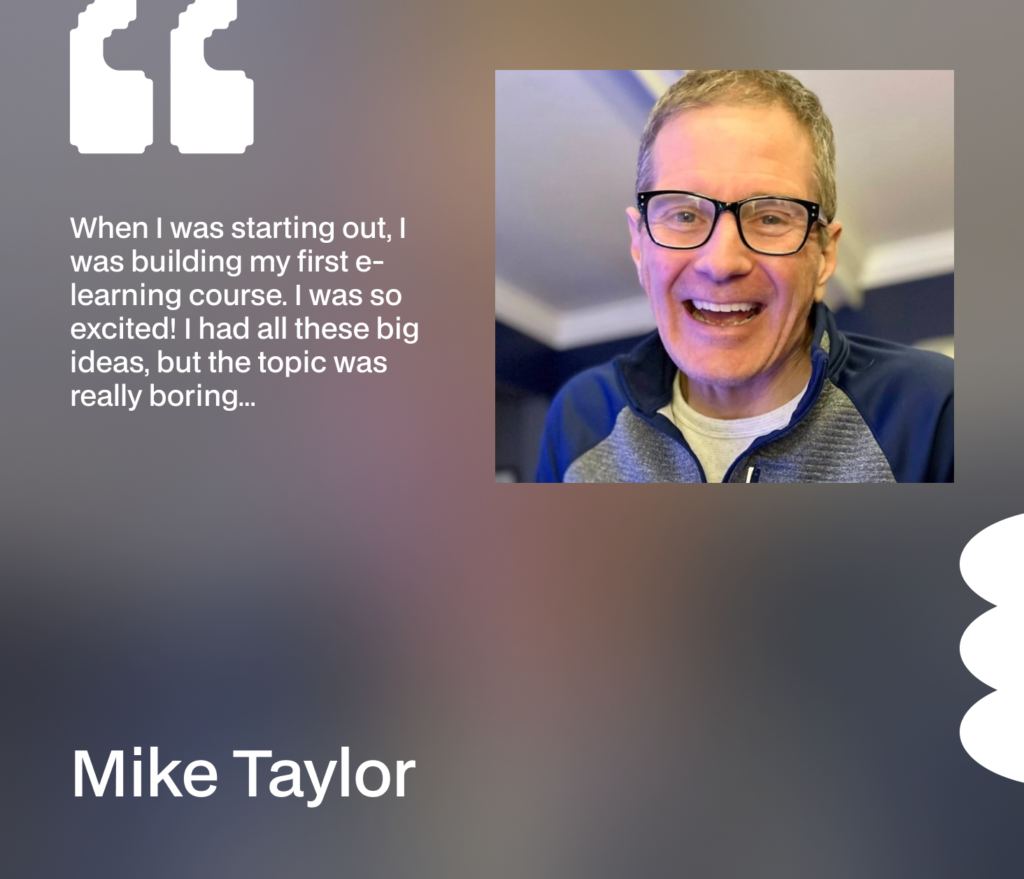
Dr. Steve Ritter
“When we first started building Cognitive Tutor—this was about 25 years ago—one of the primary investigators at Carnegie Mellon, Al Corbett, said something that has stuck with me: ‘Neither the software nor the students performed as expected.’
That’s been our experience throughout. You learn that things don’t always work as planned, and you need to be open to that. At Carnegie Learning, we even have a ‘First Pancake Award’ to recognize risks and first attempts. Like the first pancake, it’s never perfect, but you learn from it, and the next ones are better.”
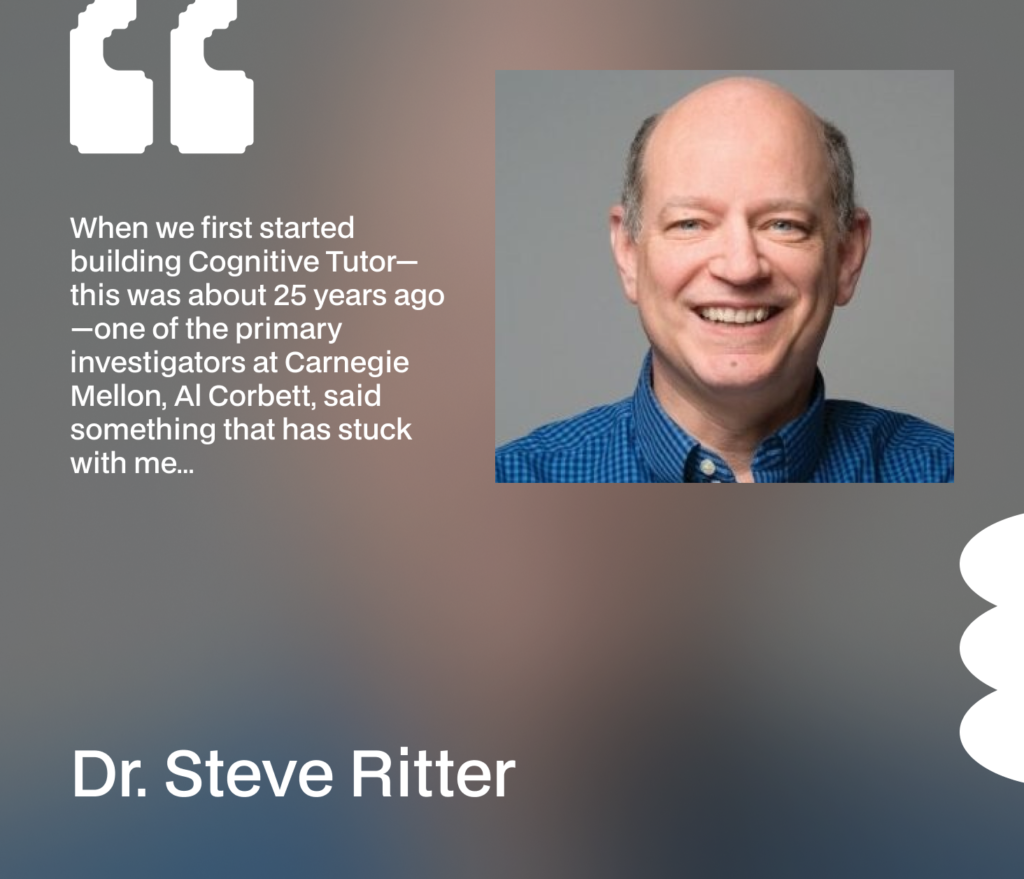
Unekwu-Ojo Shaibu
“During an internship at my university, we were tasked with solving the issue of decreasing retention rates in STEM programs. I remember one day, as a math tutor, I asked a student, ‘If 2x equals 360, what’s x?’ He hesitated, but I thought he knew the answer.
So, I reframed the question: ‘If you get two Jordans for $360, what’s the cost of one?’ He immediately said $180. That was an aha moment for me—teaching is most effective when it connects to people’s lived experiences.
In the internship, we hadn’t fully understood students’ pain points, and our solutions weren’t designed around them. That moment inspired me to pivot, focus on collecting insights, and use data-driven approaches. It also sparked my interest in learning engineering.”
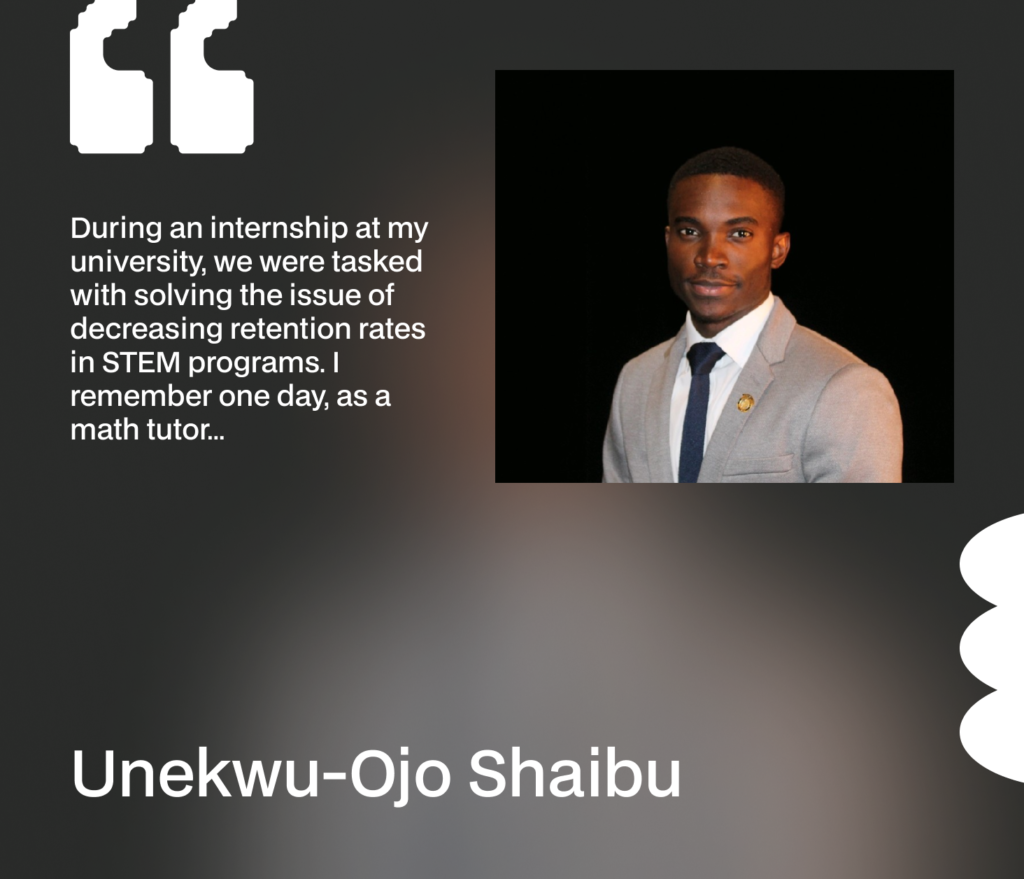
Anna Danylenko
“Mistakes happen. From lack of preparation to budget problems, I’ve seen many. The key is to assess the situation: estimate the loss, figure out what you can or cannot control, draw conclusions, and move on.”
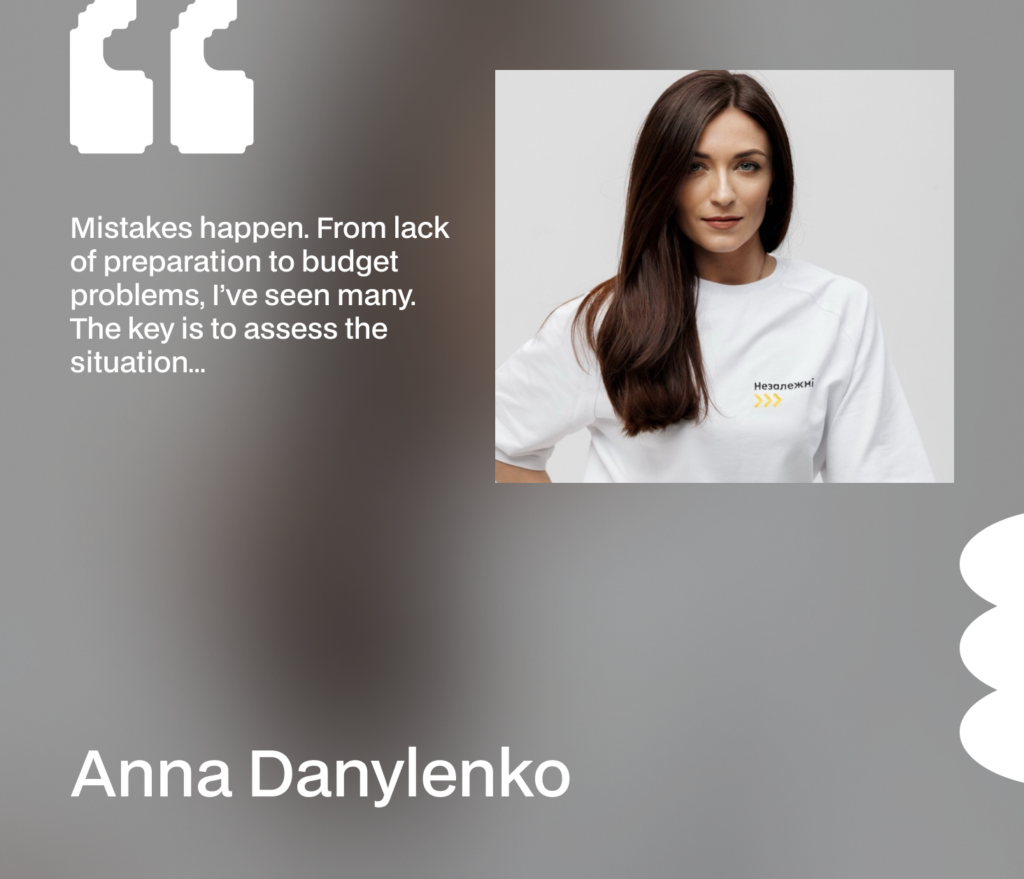
Imran Tanveer
“When I started in 2018, the situation was challenging. I jumped straight into execution—drafting content and running sessions almost daily. After a week, I realized this wasn’t the right approach.
I stepped back and started planning properly. I created a skill matrix to map out required skills, aligned trainings with organizational values, and ensured pre- and post-analysis based on data.
This approach helped me a lot, and now, whenever I start a learning and development program, I prioritize proper planning first.”
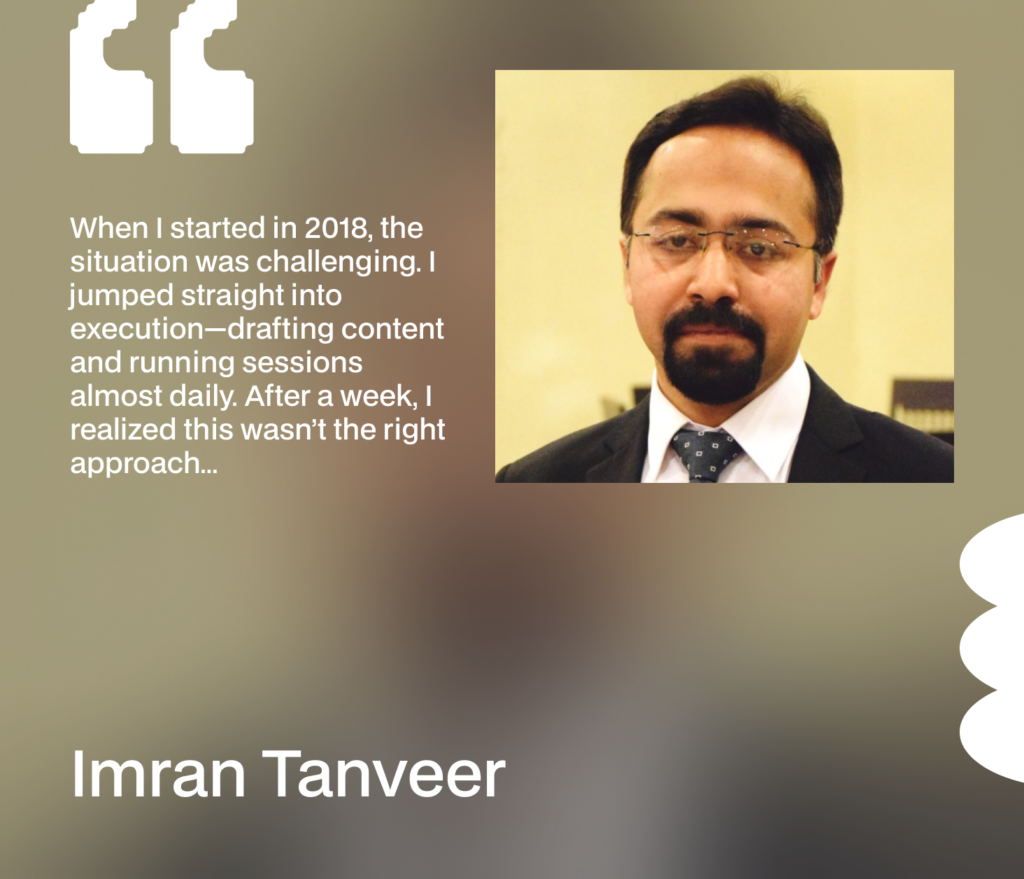
Anser Aly
“Failures are always difficult to talk about, but the first thing that comes to mind takes me back several years to the very first course I ever designed and was about to deliver. It almost didn’t happen.
At that time, I didn’t even consider myself an L&D person. I was a marketeer who was passionate about learning. So, I designed a course called Future Ready Marketing, which I was going to deliver in Kuala Lumpur, Malaysia.
However, a week before the event, the organizer called me and said, “We don’t have the exact number of participants we were expecting.” They had anticipated around 25 participants, but they only had 14 registrations. The organizer told me, “I’m okay to go ahead if you are too.”
I have to admit, I was a bit snobbish and arrogant at the time. I thought, “I’m not flying all the way to Kuala Lumpur just for 14 participants.” So, I said no. Had I stopped there, I would have never even started my L&D journey, the journey that would become my career in learning and development.
Now, I’m grateful for my father, God bless him. I used to call him every day, and when I told him the course wasn’t happening, he said, “Don’t be a fool. Why does it matter whether it’s 14 people or 24? Just go ahead.”
At the time, I didn’t really like his advice, but I always respected it. So, I called the organizer back and said, “If it’s still okay, let’s go ahead.” A week later, when I landed in Kuala Lumpur, they had 17 participants—just a little more than 14.
What was amazing is that I got all the learning I needed from those 17 people. The big lesson for me was: don’t worry about numbers, just get started. Had I stopped there, I’m sure I wouldn’t have tried again, thinking that my courses weren’t even attracting enough people to run the first one.
That was just the beginning of a very long journey, and I’m so glad I listened to my father’s advice. I didn’t focus on the numbers. I went ahead and delivered the course, got great feedback, and learned areas that needed improvement.”
